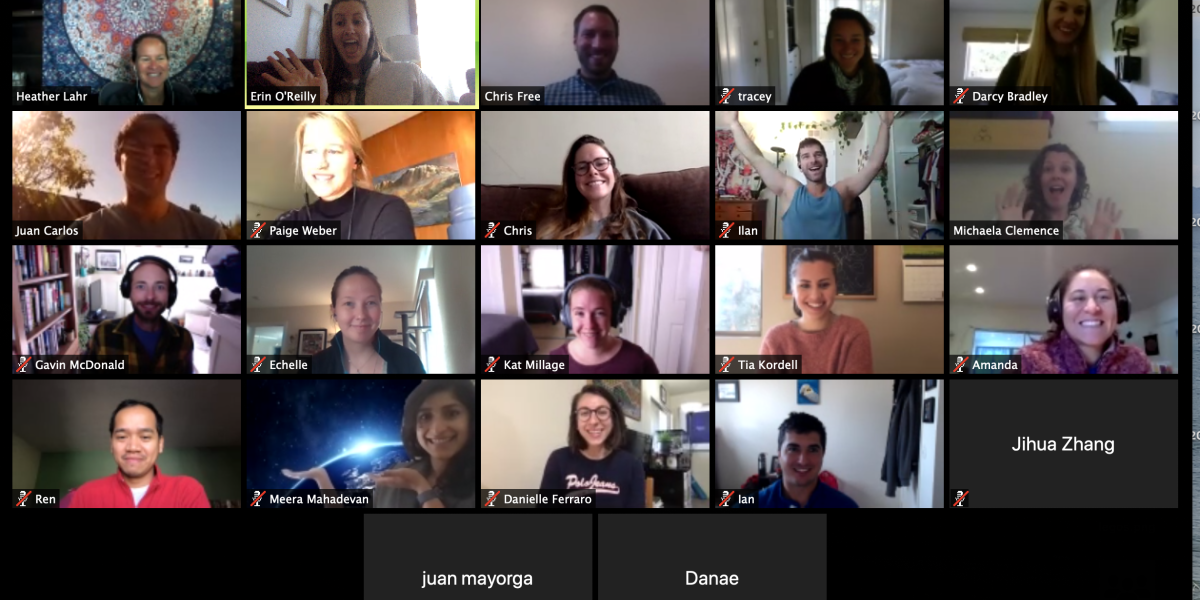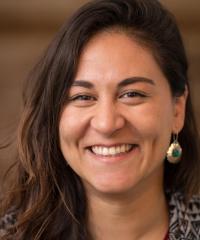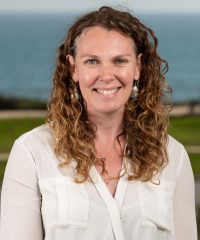
To describe this past year as “challenging” feels like a bit of an understatement. Despite the tragedies and hardships we have endured this year, our team has managed to go beyond persevering to make outstanding contributions to the field of environmental research. We are very proud of our collective accomplishments, but even more so of the kindness and understanding that our team members have consistently demonstrated for one another throughout this year - not to mention everyone’s apparently high threshold for Zoom fatigue.
In celebration of our resilience and adaptiveness during a year unlike any other, we wanted to take a moment to reflect on everything we have accomplished and learned together.
Over the past year we welcomed 8 new team members into the emLab community, virtually onboarding 7 of them in the midst of the COVID-19 pandemic, and we also hosted 11 graduate student researchers who contributed to several emLab projects. We collectively developed an emLab Code of Conduct to formalize our commitment to maintaining an inclusive environment for all of our team members and partners. Our team worked with a wide array of incredible partners to tackle pressing research questions and designed solutions for ocean and fisheries, land and freshwater, climate and energy, and people and poverty. This year, our team worked on 23 projects across these program areas and published 27 peer-reviewed papers in top academic journals. Some of the highlights included:
-
Collaborating with Global Fishing Watch to explore the extent of forced labor in fisheries. By combining satellite data, machine learning, and human rights expertise, our team was able to shed light on forced labor at sea.
-
Launching two major projects in our Climate and Energy program. These projects are focused on 1) Identifying equitable pathways to reach carbon neutrality in California’s transportation sector and, 2) investigating the labor market impacts of renewable energy policies.
-
Deepening our understanding of wildfires in California by exploring whether forest management can cost-effectively “store” carbon by avoiding carbon emissions from wildfires and examining the inequality in public wildfire response.
-
Working with CGIAR’s Standing Panel on Impact Assessment to develop a call for proposals, select projects and offer technical guidance to funded studies on the environmental impacts of agricultural innovations. Highlights included a workshop focused on remote sensing for impact evaluation, which is helping to fill the data gaps left by COVID-interrupted field work.
One thing that the pandemic and quarantine have taught us all is to celebrate one another’s successes, no matter their size. As we looked back this year during our virtual holiday party, members of our team celebrated that they built their first interactive Shiny app, published their first peer-reviewed paper, gave virtual keynote presentations, and that their research was featured in high-impact media outlets such as the New York Times and Forbes.
We celebrated victories outside of work, too, with members of our team taking on the monumental task of mastering sourdough bread, perfecting cookie decorating, learning to make homemade pasta, and exploring both their literal and figurative backyards in detail. Our “quaranteam” slack channel was an eclectic mix of kitchen creations, outdoor activities, masterful cardboard creations, and expanding families -- from new pets, to growing indoor jungles, and the welcoming of new babies.
Our research philosophy has always been founded on a collaborative approach - working together to achieve more than what we each could alone - and in many ways, the pandemic took that approach to the next level. The importance of clear, transparent workflows and communication became more apparent than ever, and we were grateful that the data streamlining process we established last year set us up for success during the transition to remote work. We learned how to adapt our communication styles, using coherent and precise language as we navigated through a sea of Zoom meetings and Slack messages.
Working remotely also created a window into our homes, giving us a very personal glimpse into each other’s lives. We’ve all learned an important lesson in empathy, especially when it comes to managing circumstances that are out of our control. We’ve had frank and honest conversations about mental and emotional health and it has taught us how to better support one another, both professionally and personally.
While we are eager to leave the more egregious parts of 2020 behind, we intend to carry the lessons we’ve learned this year into 2021. We are more motivated than ever to tackle the complex challenges that face our species and our environment, and we’ve never been more optimistic about our ability to do so. We look forward to expanding the diversity of expertise and perspectives in our community and bringing an attitude of ambitious possibility to deliver creative solutions to some of the world’s most pressing challenges, in 2021 and beyond.





